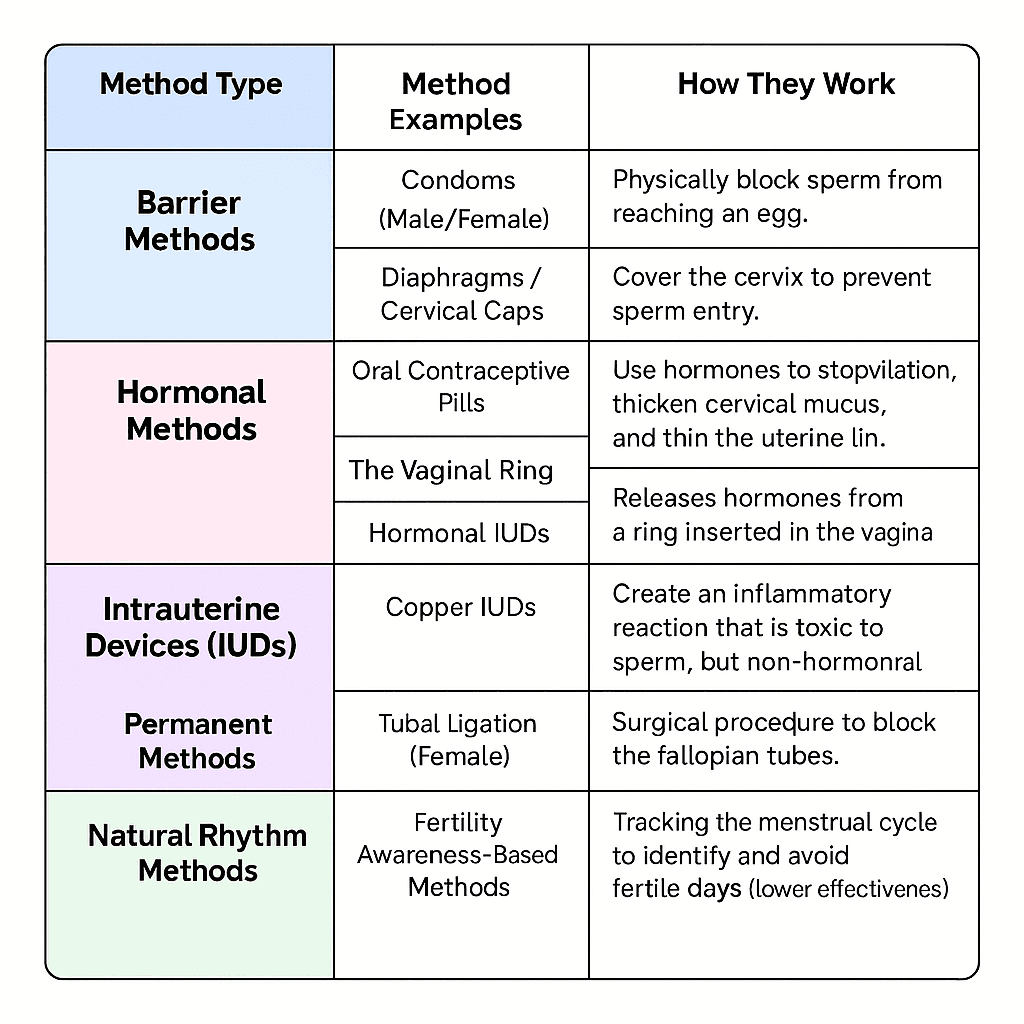Home
Blogs
She Reads
27-Year-old Mumbai Woman Suffers Heart Attack Due to Contraceptive Pills. Are They Safe?
27-Year-old Mumbai Woman Suffers Heart Attack Due to Contraceptive Pills. Are They Safe?

Introduction
Women have used contraceptive pills for a long time and for various reasons, ranging from using them as birth control to keeping their hormones in check, but who would’ve known that the same pill would ultimately land a young woman in the hospital?
Payal (name changed), a 27-year-old from Mumbai, experienced a heart attack that led her to be admitted to the hospital. This incident shocked her family, as how could a young woman like her be subjected to a heart attack?
According to doctors, young women are usually protected from heart attacks by the oestrogen coursing through their bodies. Still, in this case, they suspected that it was the contraceptive pill that Payal was taking for her PCOS that was the main culprit.
Millions of women take contraceptive pills for birth control and managing their PCOS or other hormonal issues, but this incident is a jarring reminder of the fallibility of such medications, how much we don’t know, and how we need to understand the full scope of such medicines.
Usually, the hormone oestrogen helps keep the blood vessels open and reduces inflammation. However, a Danish study, published in February 2022 in the British Medical Journal, found that the common combined oestrogen-progestin contraceptive pill doubled the risk of ischemic stroke and heart attack.
Furthermore, the study found the following estimates for risk from the pill: one additional stroke per 4,760 women using the pill for one year and one additional heart attack per 10,000 women per year.
Oestrogen-containing products such as the vaginal ring and skin patches were also considered alarming. This begs the question, “Are contraceptive pills really safe?”
What are Oral Contraceptive Pills and How Do They Work?
The oral contraceptive pill is a type of medication that contains hormones made from oestrogen and a progestin. The way that they prevent a pregnancy is usually first by preventing ovulation, so that an ovum is not released from the ovary.
The pills make the mucus thicker and stickier, which enhances the barrier to block the sperm from moving to the uterus. Additionally, the hormones thin the endometrial lining where the fertilised egg would implant. This makes oral contraceptives a highly effective form of birth control.
The Core Question: Are Contraceptive Pills Harmful?
A Balanced View: Weighing the Risks Against the Benefits
Contraceptive pills are a popular form of birth control and are deemed a safe and effective option for many women. Beyond birth control, oral contraceptive pills also have therapeutic benefits.
Many women notice more regular, lighter, and less painful periods after taking these pills. In some cases, it even helps decrease acne and manage symptoms of Polycystic Ovary Syndrome (PCOS).
However, like any medication, there are potential side effects associated with oral contraceptive pills when compared to other forms of contraception, which may vary from person to person.
Common and Manageable Side Effects
Most women initially experience mild but manageable side effects when taking contraceptive pills, which usually only occur in the first few months of taking the pills. For example, the most common side effects are:
- Nausea
- Headaches
- Breast tenderness
- Bloating
- Mood swings.
All of these symptoms typically decrease with time and stop completely between 2-3 cycles of starting the pill. If the symptoms persist or are bothersome, you can request that your doctor change the medication or explore other options.
Serious Health Risks: Understanding the Connection
Even though these pills are generally safe, there are some exceptions. In Payal’s case, she had been suffering from PCOS for more than ten years. PCOS independently increases cardiovascular risk through associated metabolic factors like insulin resistance and obesity, which can further worsen due to the use of oral contraceptive pills.
Contraceptive pills can also cause blood clotting, deep vein thrombosis, pulmonary embolism, stroke, and heart attack in some cases. These serious complications are rare but cannot be ignored.
Women over 35, women who smoke, and women with a history of high blood pressure, migraines, personal history of blood clots, and family history of blood clots are more at risk.
They need to get a thorough health assessment from their doctors before committing to a birth control or oral contraceptive program to avoid any future problems.

Which Contraceptive Method Changes the Hormonal Balance?
All hormonal contraceptive methods involve flooding the body with synthetic hormones, which naturally manipulate the levels of hormones in the body to avoid pregnancy. These methods mainly rely on the use of synthetic oestrogen and progestin so that they can have their desired effect.
Popular hormonal birth control methods include:
-
Oral Contraceptive Pills: These have combined oestrogen and progestin and are also available as progestin-only pills, otherwise known as a mini-pill.
-
Contraceptive Patch: It is a thin piece of plastic material that is put on the skin and releases hormones into the body through dermal contact.
-
The Vaginal Ring: This is a flexible ring that is placed inside the vagina, that continuously delivers hormones.
-
Hormonal IUDs (Intrauterine Devices): These are T-shaped, small devices inserted into the uterus to release local progestin.
-
The Contraceptive Injection: This is an injection containing progestin that is usually administered every few months.
-
Contraceptive Implant: A small rod is implanted in the upper arm, just beneath the skin, that releases progestin into the system.
Non-hormonal methods, such as copper IUDs and barrier methods such as condoms and diaphragms, on the other hand, prevent pregnancy but do not affect the hormonal balance in the body.

10 Reasons Highlighting the Importance of Mental Health Awareness Among Students

10 Signs of Hypothyroidism That You Should Be Worried Of

10 Skin Diseases You Should Know About

10 Things to Do at Home During an Asthma Attack
How Many Contraceptive Pills Should Be Taken? A Guide to Safe Usage
Most of the oral contraceptive pills are designed to be taken once a day, preferably at the same time of day, so that the level of the hormone remains steady in the body.
The variety of the pill, dosage, and specific schedule must be carefully prescribed by a medical professional or your go-to gynaecologist. Such a prescription depends on specific needs, lifestyle, and health history of the person.
It is also essential to be aware of the risks associated with self-prescribing or taking a prescription from another person, as incorrect usage can result in impaired effectiveness. It poses a significant risk and can cause adverse side effects.
What are The Contraceptive Methods?
Understanding the different contraceptive options available is the first step towards making a mindful and informed decision when it comes to your reproductive health.

So, Which Contraceptive Method is The Best?
There is no single contraceptive that fits all, as it depends on the individual, their choices, health history, and many other factors. Here is a list of points to consider when considering which method suits your needs the best:
1. Health Factors:
It is very crucial to factor in any health conditions like PCOS, blood clotting, diabetes, high blood pressure, aura migraines, or any history of health issues before getting a prescription for hormonal birth control pills. As a precaution, always consult your doctor first.
2. Lifestyle:
Your lifestyle, regular drug consumption, and frequency of sexual activity are all important factors that need to be considered when opting for a contraceptive method.
3. Smoking Habits:
People who smoke have a high chance of being affected by hormonal contraceptives.
4. Age:
Some risks may be age-dependent and might only increase with age.
5. Effectiveness Rates:
Research and ask about the level of effectiveness in preventing pregnancy.
6. Family Planning Objectives:
Consider whether you want to have children in the future and the timeline to plan a proper birth control program.
7. STI Protection:
Out of all the prevention measures, only condoms protect against sexually transmitted diseases, so keep this in mind when opting for an effective contraceptive method.
All said and done, a doctor is the only person who can quite accurately evaluate your health risks, including your lifestyle, expectations, and family planning, and guide you in making the safest and most effective decision.
It is especially important in the case of people with pre-existing conditions, such as PCOS, because specific methods may be associated with higher risks or provide extra benefits.

Conclusion
The tragic story of Payal is a wake-up call that even though contraceptive pills are a safe and highly effective method, it is necessary to be educated about their effects.
Take this chance to educate yourselves and others about birth control and have an honest conversation with your doctor so that you can take care of your body while being careful and informed.
It is essential to discuss your health history, lifestyle, and concerns with your doctor openly to prevent any future complications.





